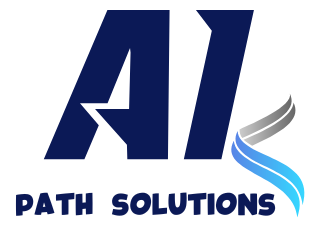In today’s rapidly evolving financial landscape, artificial intelligence (AI) is emerging as a game-changer in accounting. As organizations seek to streamline processes, reduce costs, and enhance decision-making, AI technologies are being integrated into various accounting functions. This article explores the significant impact of AI on accounting, highlighting its applications, benefits, and the challenges that come with its adoption.
1. Automating Routine Tasks
One of the most significant advantages of AI in accounting is its ability to automate repetitive tasks. Many traditional accounting processes, such as data entry, invoice processing, and reconciliation, require significant time and effort from finance professionals. AI-powered tools can streamline these tasks by leveraging machine learning and natural language processing.
For instance, AI algorithms can analyze invoices, extract relevant data, and automatically input it into accounting systems, reducing the risk of human error and freeing up accountants to focus on more strategic activities. By automating routine tasks, organizations can improve efficiency and accuracy while minimizing labor costs.
2. Enhanced Data Analysis
AI-driven analytics tools are revolutionizing how accountants analyze financial data. Traditional data analysis often involves manually sifting through large datasets, which can be time-consuming and prone to errors. AI technologies can process vast amounts of data at lightning speed, identifying trends, anomalies, and insights that may not be immediately apparent to human analysts.
For example, AI can analyze historical financial data to forecast future performance, helping organizations make informed decisions about budgeting, investments, and resource allocation. By providing deeper insights into financial trends, AI empowers accountants to offer valuable strategic advice to management.
3. Improved Financial Forecasting
Accurate financial forecasting is crucial for organizations to plan for the future effectively. AI enhances forecasting capabilities by using machine learning algorithms to analyze historical data and identify patterns that can inform future predictions.
AI can consider various factors, such as seasonality, economic indicators, and market trends, to generate more accurate forecasts. This predictive capability allows organizations to make proactive decisions, optimize inventory levels, and allocate resources effectively, ultimately leading to better financial performance.
4. Fraud Detection and Risk Management
Fraud is a significant concern for organizations, and AI is playing a pivotal role in enhancing fraud detection and risk management. AI algorithms can analyze transaction patterns in real time, flagging any anomalies or suspicious activities that may indicate fraudulent behavior.
By continuously monitoring financial transactions, AI can identify potential risks and alert finance teams to investigate further. This proactive approach to fraud detection helps organizations mitigate financial losses and protect their assets.
5. Streamlined Auditing Processes
AI is also transforming the auditing process by improving accuracy and efficiency. Traditional audits often involve manual checks and reviews, which can be time-consuming and prone to oversight. AI-powered auditing tools can automate data analysis, enabling auditors to focus on higher-level assessments and strategic recommendations.
For instance, AI can analyze large volumes of transactional data, identify discrepancies, and provide insights into potential areas of concern. By streamlining the auditing process, organizations can reduce compliance risks and improve the overall quality of their financial reporting.
6. Enhanced Client Services
In accounting firms, providing exceptional client service is paramount. AI can help enhance client interactions by automating routine inquiries and providing real-time insights into financial performance. Chatbots and virtual assistants powered by AI can assist clients with frequently asked questions, schedule appointments, and provide updates on their accounts.
Moreover, AI-driven analytics tools can generate personalized financial reports for clients, highlighting key metrics and trends relevant to their business. By leveraging AI, accounting firms can improve client satisfaction and foster stronger relationships.
7. Cost Reduction and Efficiency
Implementing AI in accounting processes can lead to significant cost savings for organizations. By automating routine tasks and improving data analysis, businesses can reduce labor costs and enhance overall operational efficiency. Additionally, AI can help minimize errors and discrepancies, resulting in lower costs associated with compliance and corrections.
As organizations continue to invest in AI technologies, they can expect to see a positive return on investment through increased efficiency and reduced operational costs.
8. Challenges of AI in Accounting
Despite the numerous benefits, the adoption of AI in accounting comes with its challenges. One major concern is the potential for bias in AI algorithms. If the data used to train AI systems is biased, it can lead to skewed outcomes that may affect decision-making. It is crucial for organizations to ensure that AI models are developed and monitored to mitigate bias effectively.
Additionally, integrating AI into existing accounting workflows may require significant changes in organizational culture and practices. Finance professionals may need training to adapt to new technologies, and there may be resistance to adopting AI solutions.
9. The Future of AI in Accounting
The future of AI in accounting looks promising, with ongoing advancements in machine learning and data analytics set to enhance the capabilities of AI tools. As technology continues to evolve, AI will play an increasingly vital role in shaping the accounting profession.
Organizations that embrace AI will likely see improved efficiency, enhanced decision-making, and stronger client relationships. Moreover, as AI continues to advance, it may open up new opportunities for accountants to focus on higher-value tasks, such as strategic advising and business planning.
Conclusion
AI is revolutionizing the accounting profession, providing powerful tools to automate routine tasks, enhance data analysis, and improve client services. By leveraging AI technologies, organizations can streamline operations, reduce costs, and gain valuable insights that drive strategic decision-making.
However, as organizations embrace AI, they must address ethical considerations, mitigate bias, and ensure a smooth integration into existing workflows. By doing so, they can harness the full potential of AI, paving the way for a more efficient and effective future in accounting.
